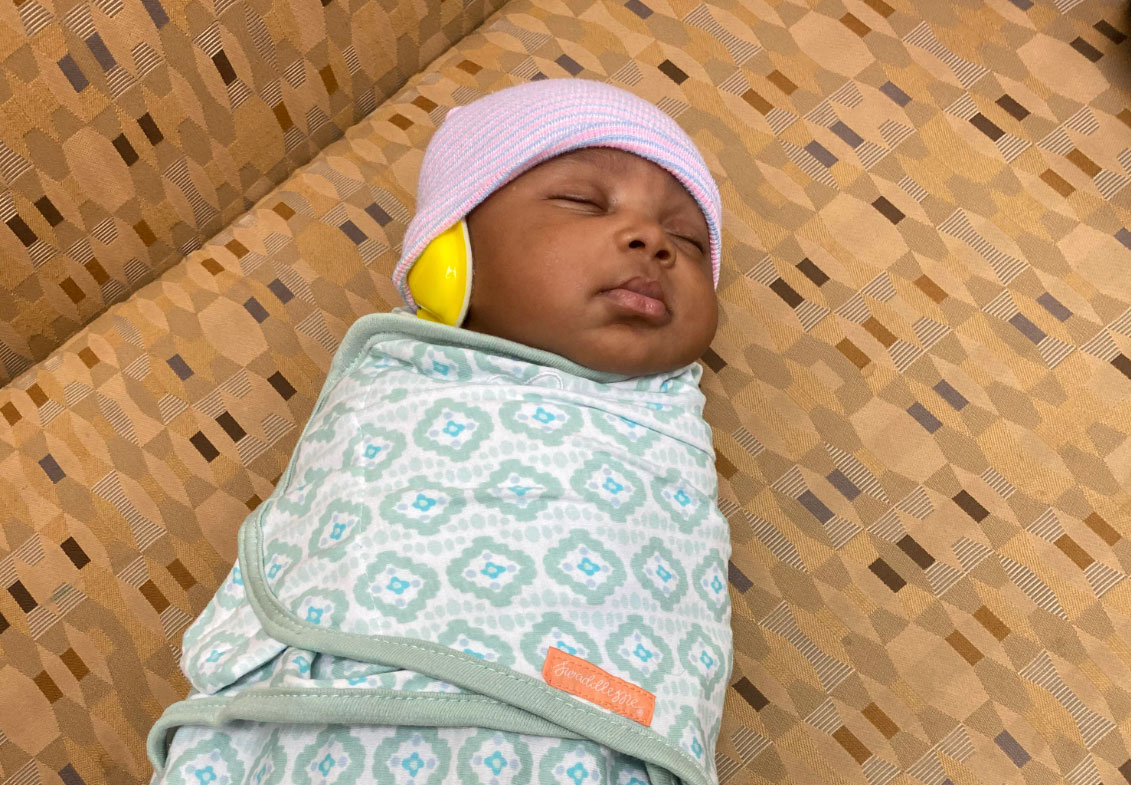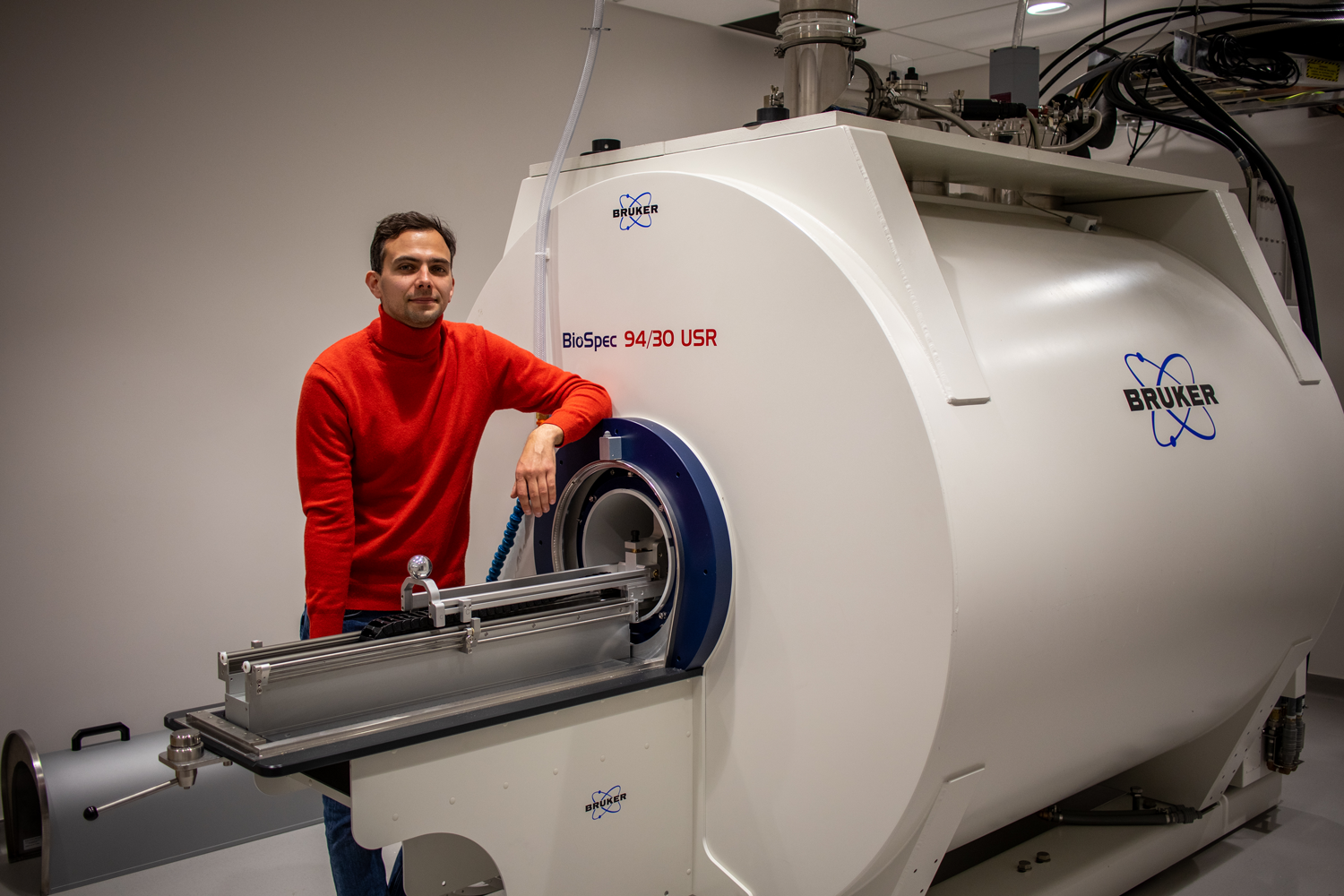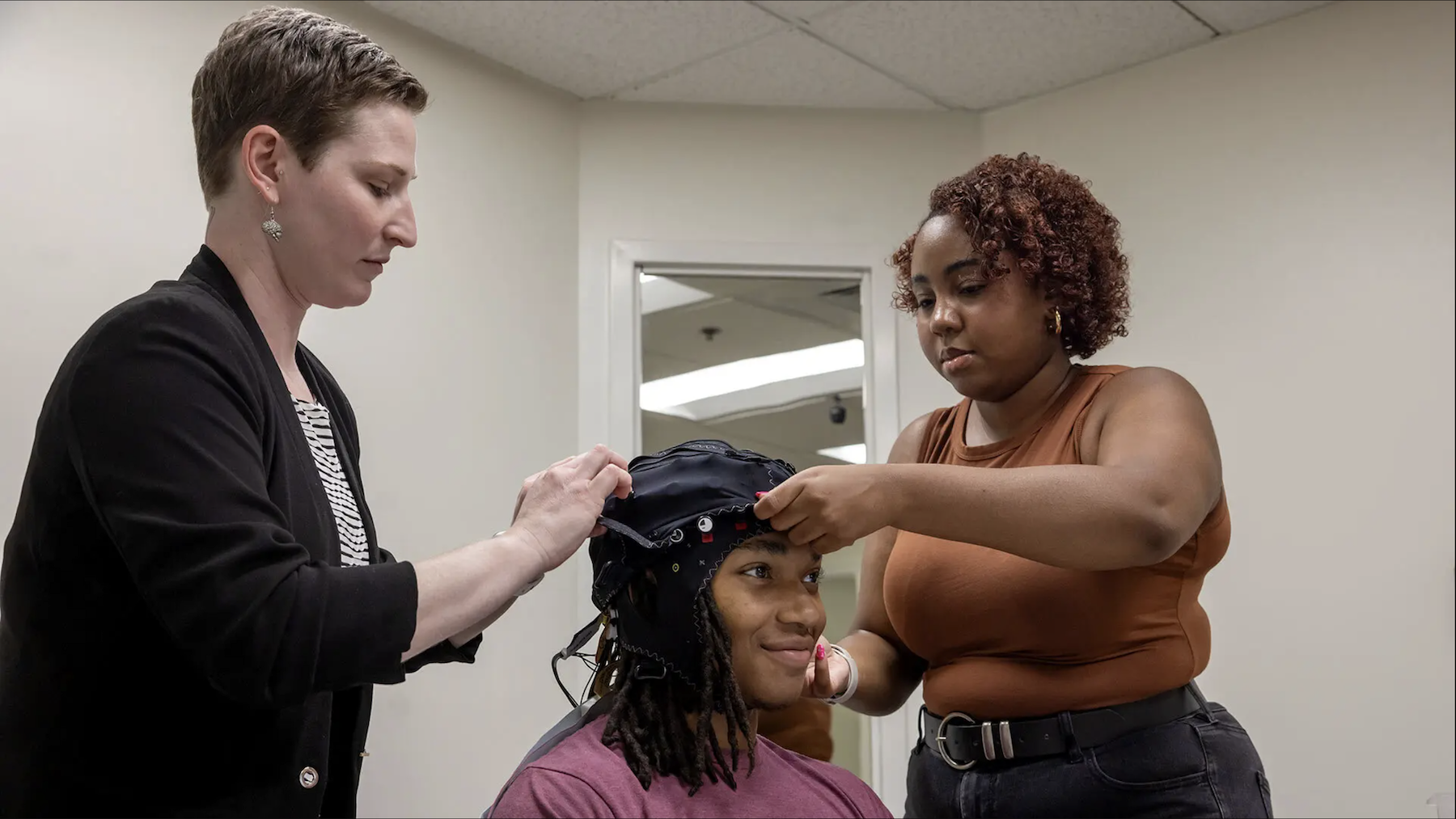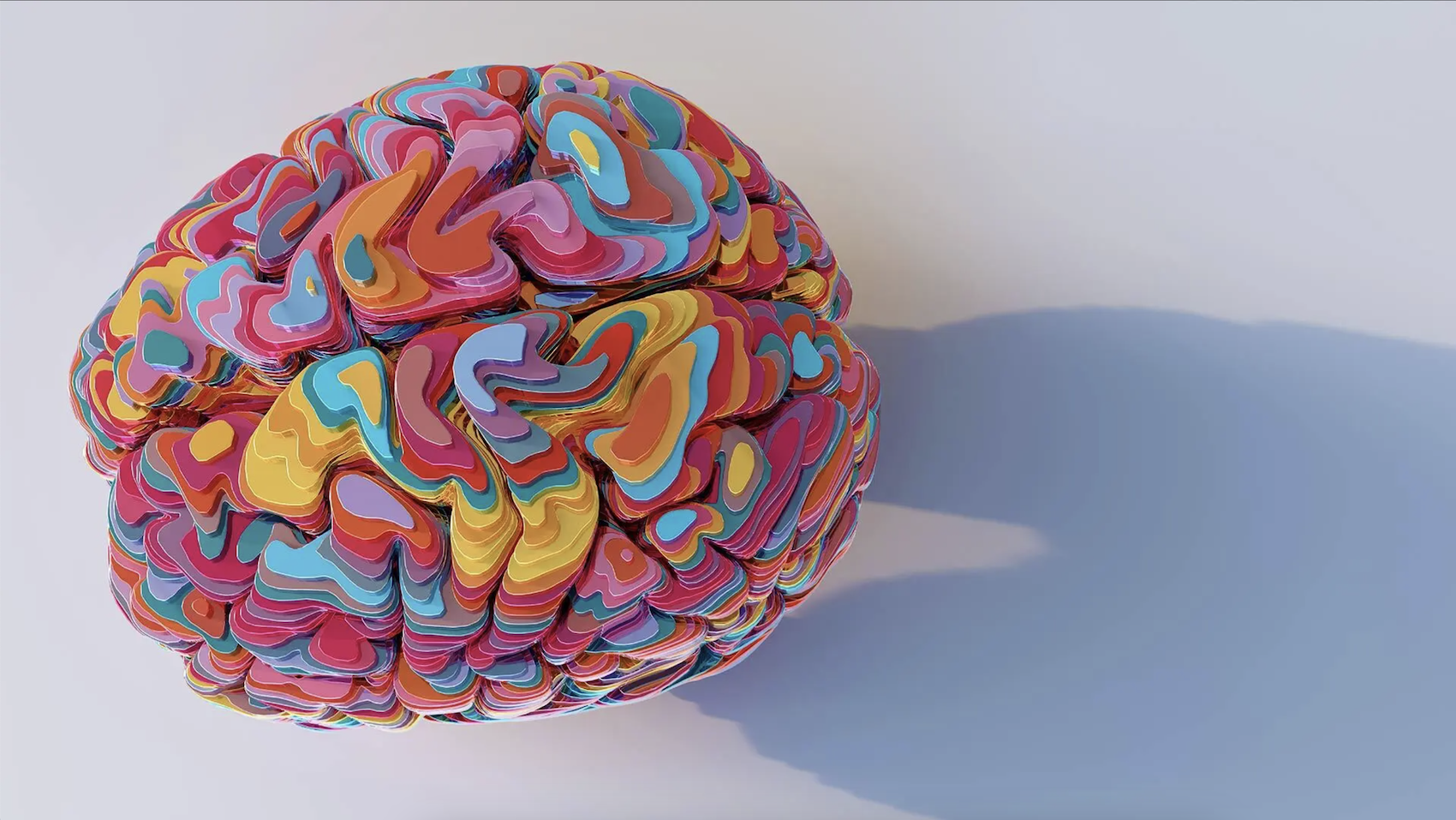News Story
UMD Researchers Begin Recruiting Participants for Largest-Ever Study of Brain Development in Infants and Children
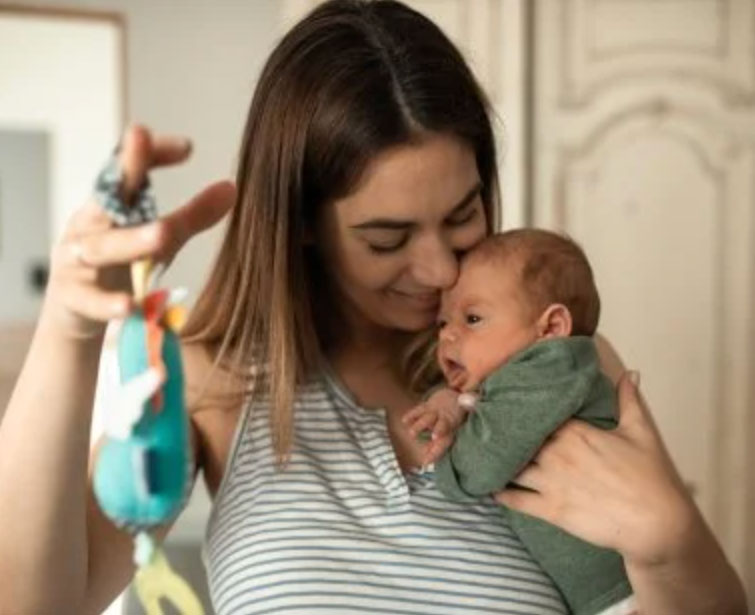
University of Maryland education and psychology researchers have begun recruiting pregnant participants for the largest long-term study of early brain and child development ever conducted in the United States. Nationwide, the HEALthy Brain and Child Development (HBCD) Study will enroll thousands of individuals in their second trimester of pregnancy and follow them and their children through early childhood. The study will result in an extensive set of data, which will be publicly available and will provide information that will benefit children and families for generations to come. UMD is one of 27 sites nationwide selected to participate in the study.
“We know that brain development occurs rapidly after birth,” said Nathan Fox, Distinguished University Professor in the Department of Human Development and Quantitative Methodology in the College of Education and one of three principal investigators for the Maryland site. “This study will allow researchers to ask questions about the effects of the environment on brain development that they weren't able to ask before.”
The HBCD Study will examine factors that affect brain development, including risk factors like exposure to opioids and other substances, poverty, trauma and other environmental conditions, as well as resilience factors like positive relationships between caregivers and children, substance use disorder treatment, and social and economic support. In addition, the study will establish a baseline for typical brain development.
“We have growth charts that tell us what percentile children fall into for height, weight and head circumference, but we have nothing like that for the brain,” said Tracy Riggins, professor in the Department of Psychology in the College of Behavioral and Social Sciences and a principal investigator for the Maryland site. “By studying thousands of children, we will be able to get a sense of an individual child’s brain development trajectory and where they fall relative to their peers.”
Nationwide, half of the study participants will be identified as having experienced adversities in their backgrounds. One-quarter of participants will be individuals who use substances or are in treatment for substance use disorder. The study sample will represent the diversity of children across the country, representing different regions, races, ethnicities, socioeconomic classes and environmental exposures, as well as urban and rural communities. Such diversity is important because it will allow researchers to apply findings nationwide.
Before the babies are born, researchers will survey pregnant individuals about the environments in which they live, gather data on medical and family history, and collect blood and other biological samples for genetic screening. Beginning in the first month of life and continuing through early childhood, researchers will track children’s brain development using methods such as magnetic resonance imaging (MRI) and electroencephalograms (EEG). The HBCD Study marks the most extensive use of brain imaging of babies and young children to date. The study will also follow children’s growth and motor, cognitive, social emotional and behavioral development.
A baby, swaddled and wearing ear protectors to help them stay asleep naturally, is prepared for an MRI scan as part of the HEALthy Brain and Child Development Study.
Fox is associate director of the study’s Data Core, which is responsible for the uploading and quality control of the collected data. He leads the effort to acquire EEG data from all of the sites. Riggins is leading the MRI data collection at the Maryland Neuroimaging Center and serves on the leadership team for the national MRI working group. Since the project first launched in 2021, they have been coordinating across sites nationwide to train staff and establish consistent methods and protocols for data collection and analysis.
The UMD team is working with local hospitals to recruit 400 participants from Maryland and Washington, D.C. As the Maryland site’s third principal investigator, Brenda Jones Harden, professor emerita in the College of Education and professor in Columbia University's School of Social Work, leads recruitment and retention efforts. Her team has put extensive work into breaking down barriers to participation.
“We defer to parents and babies,” said Jones Harden. The team schedules scans and visits around the families’ schedules and makes sure they feel comfortable and appreciated at every turn. They welcome them to campus with cozy family waiting rooms, changing tables, cribs and free diapers and baby clothes. The team also provides transportation to campus and babysitters for participants’ older children. Because MRI scans must be done when babies are naturally asleep, they are often scheduled at night–so the team provides hotel accommodations for families so they don’t need to travel home after dark. Some visits take place in participants’ homes, where they may feel more at ease. The project also hires and trains research assistants from the same communities as the participants to help build trust.
“Many of these communities have been historically mistreated by science and research,” said Jones Harden. “We have created a culture of researchers who respect, validate and understand these families.”
The three principal investigators lead a team that includes researchers from the UMD College of Behavioral and Social Sciences, College of Education and School of Public Health, as well as from the School of Social Work and the Department of Obstetrics at the University of Maryland Medical Center in Baltimore. The Brain and Behavior Institute also helped to upgrade equipment necessary for the research. The UMD team will receive more than $1 million per year for the first five years of the 10-year project.
Part of the Helping to End Addiction Long-term Initiative, the HBCD Study is led by the National Institute on Drug Abuse and funded by 10 institutes and offices at the National Institutes of Health. Individuals interested in participating in the study may contact the UMD team at 301-405-5210 or hbcd@umd.edu.
–Original story from the University of Maryland College of Education
Published October 9, 2023
